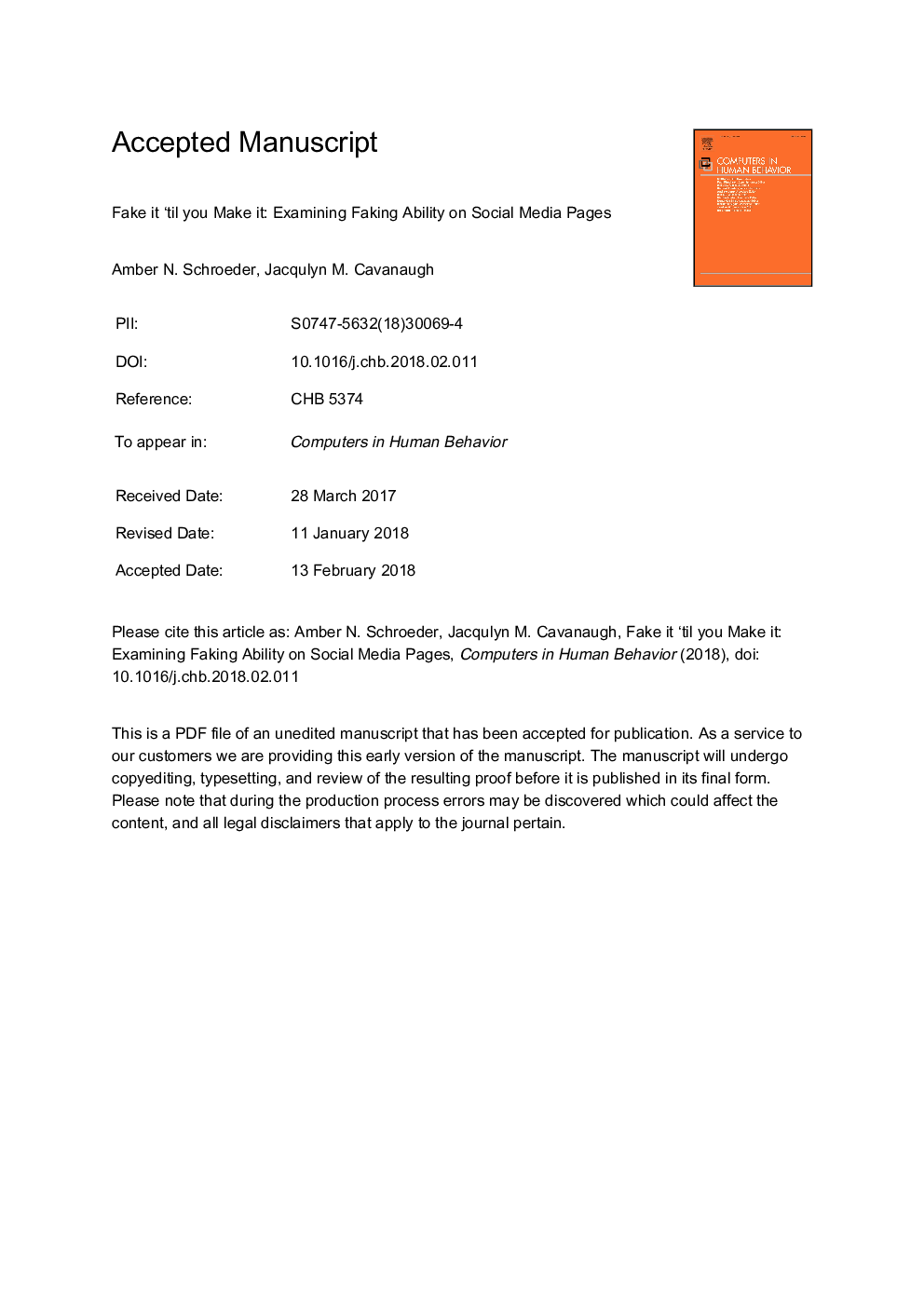| Article ID | Journal | Published Year | Pages | File Type |
|---|---|---|---|---|
| 6835965 | Computers in Human Behavior | 2018 | 33 Pages |
Abstract
The current study investigated job applicant faking ability on Facebook, including an examination of various individual differences and strategies predictive of faking success. Using an experimental design, results indicated that individuals are able to manipulate Facebook profiles in order to convey a certain image. Individual difference predictors of faking ability included age, daily Facebook usage, cognitive ability, Facebook impression motivation, self-monitoring ability and sensitivity, and neuroticism. Individuals used slightly different modification strategies across conditions, and interestingly, the most effective strategy, removing statuses, was a significant predictor of faking ability in only the “fake good” condition, which is consistent with research on negative salience effects. Profile suitability ratings provided by three independent raters demonstrated high inter-rater reliability, but low inter-rater agreement. Of the examined Facebook profile components, wall posts and likes emerged as significant predictors of overall suitability ratings. Thus, these findings highlight potential concerns regarding the use of social networking sites as applicant evaluation tools in organizational contexts. Future research directions are suggested.
Related Topics
Physical Sciences and Engineering
Computer Science
Computer Science Applications
Authors
Amber N. Schroeder, Jacqulyn M. Cavanaugh,
